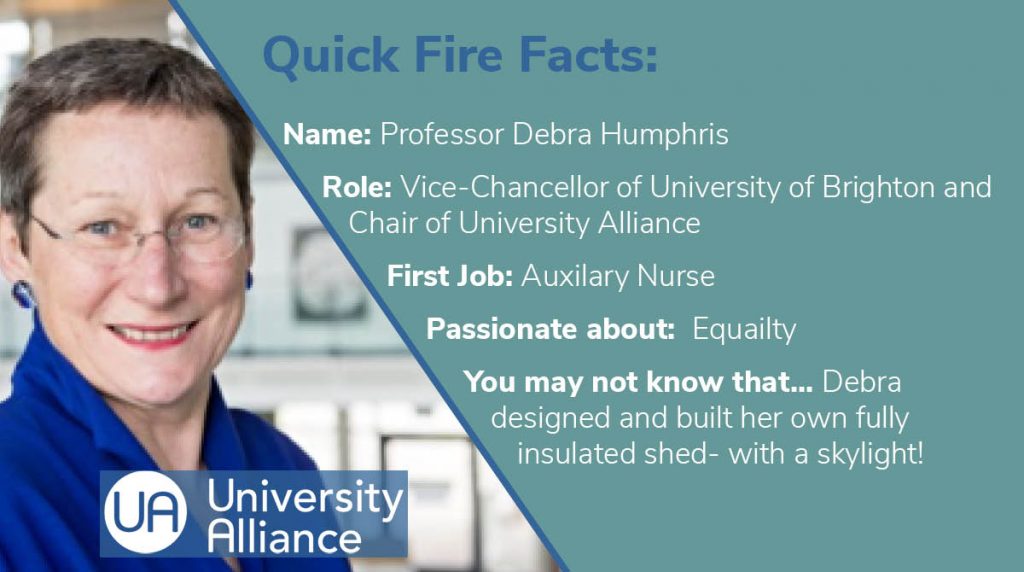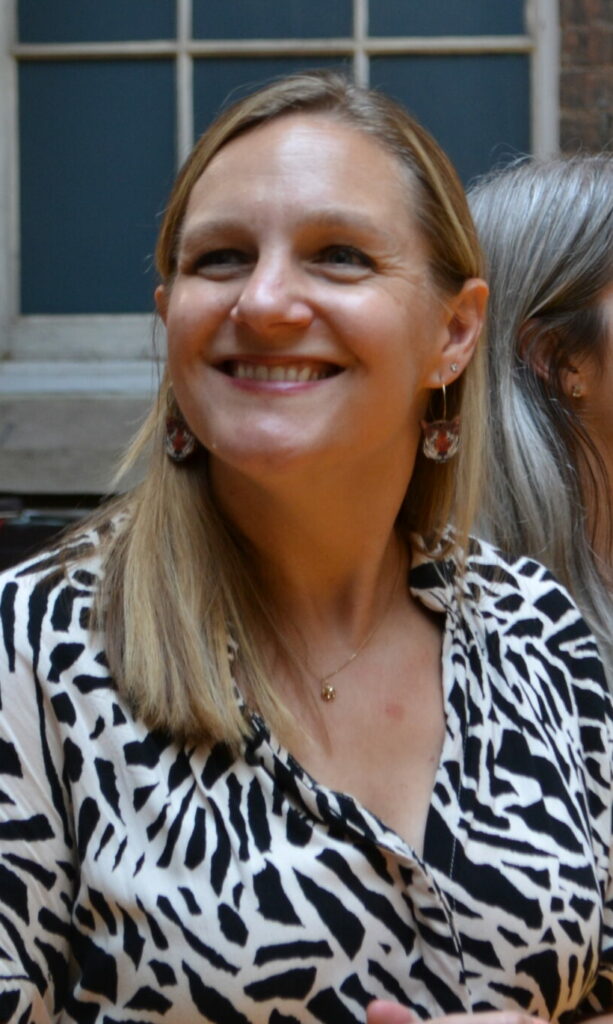Professor Debra Humphris has been Vice-Chancellor of the University of Brighton since December 2015. Starting her career as a practicing nurse, her route into academia has been far from traditional. After initial training, she was encouraged to take the newly introduced nursing diploma and was later sponsored by the NHS to undertake the qualifications required to teach nursing.
Debra would go on to complete a master’s at Portsmouth and a PhD at the University of London, St George’s Hospital Medical School, before embarking on an academic career. This was a huge achievement considering she had failed her 11+, not gained the right grades to enter teaching, and, by her own admission, had spent more of her school years playing sport than studying.
The fact that this didn’t hold her back, has shaped Debra’s view on higher education. As she puts it, “We need to recognise that people learn and develop at different ages in their life; at different stages and in different ways. It’s can’t just be about one chance at eighteen.”
 Across her many senior leadership roles, Debra has championed student engagement and outreach programmes, and continues to do so in her role as Chair of UUK’s Student Policy Network. She wants to ensure that others continue to get the same opportunities she had. She says much of her work is driven by this aim- “Education has transformed my life, my life experiences, and I feel absolutely driven to help do the same for other people.”
Across her many senior leadership roles, Debra has championed student engagement and outreach programmes, and continues to do so in her role as Chair of UUK’s Student Policy Network. She wants to ensure that others continue to get the same opportunities she had. She says much of her work is driven by this aim- “Education has transformed my life, my life experiences, and I feel absolutely driven to help do the same for other people.”
Of course, many of the opportunities afforded to Debra were made available by NHS funding. Her initial training and later diploma were both paid for entirely by the NHS, as a recognition of the value of the profession. Restoring incentives and funding for healthcare degrees and CPD is understandably another area about which Debra is passionate.
Her own educational journey has fundamentally shaped Debra’s approach to running a university, and higher education more broadly. She says “I really believe in the value of in-practice learning. Whether its curating collections, testing engines, surveying a site, working in health practice or in the reality of running business, having that hands-on experience is such an important part of learning.“
This is partly what drew her to University Alliance, to be part of a team of like-minded universities; “We enable many whose opportunities may not have been the best, but who have the drive and determination to do well … we work with businesses and are embedded in our communities. We really do transform lives and communities.”
Although she thinks we will be in for a turbulent few years, with financial pressures increasing and the added challenge of a potential no-deal Brexit, Debra believes “we are absolutely stronger together”. Furthermore, she says “universities will be more important than ever, delivering the high-level work force, the innovation and creativity, that the economy needs.”




